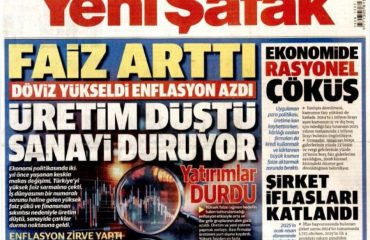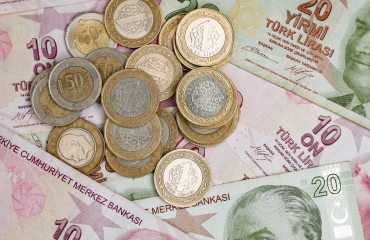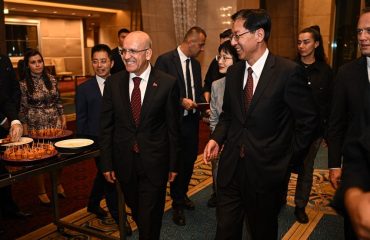Turkish Foreign Ministry said that a diplomat working in the Turkish Consulate General in Erbil, capital of the Kurdistan Regional Government (KRG) in Iraq, was murdered in an armed attack on the afternoon of July 17. The name of the diplomat was disclosed as 36 years-old Osman Köse. (*) An Iraqi citizen is reportedly killed in the attack.
Agencies report that soon after a group of Turkish consulate personnel were given their table for lunch in the downtown restaurant of Huqqabaz, a man with civilian clothes emerged, carrying a gun with a silencer (two guns according to different witness accounts) and opened fire at the table. Erbil police chief Abdullatif Talat was quoted saying that a manhunt was underway to arrest the other(s). Security experts commenting on Turkish TV stations point at the fact that Turkish consulate members have been frequenting the restaurant because of the security measures there. They also claim that the Turkish Council General was sharing the headquarters with several international companies and agencies under tight security; because the attackers could not target the diplomat in the consulate they might have picked the restaurant for the assassination.
Turkish security sources told YetkinReport on condition of anonymity that they suspected the attack to be a terrorist one. They also suspect the attack could have been carried out by the outlawed Kurdistan Workers’ Party (PKK) but the method of the assassination doesn’t look like a typical PKK attack; they can therefore not be certain before a criminal investigation is carried out.
Turkish Presidential Spokesman İbrahim Kalın stated that those who are responsible for the attack would pay for it. President Tayyip Erdoğan said on Twitter that he condemned the attack and urged the Iraqi government to find the attackers as soon as possible. Iraqi Foreign Ministry, the U.S. Embassy in Ankara and the European Commission Representation in Ankara also condemned the attack.
The Turkish military has been carrying out a campaign against the PKK positions in Iraq, called “Operation Claw”, for more than a month in cooperation with the KRG under silent approval of Baghdad. Nechirvan Barzani, the new KRG leader had paid a visit to Turkey last month to meet Erdoğan to discuss possible cooperation in many fields including oil trade. Following the U.S. sanctions of Iraq Turkey has been planning to replace imports from Iran (almost half of the Turkish oil imports being from Iran in 2018) with imports from Iraq, mainly from the KRG region. There are two twin pipelines from Kirkuk and Mosul oilfields to Turkey’s Mediterranean terminal of Ceyhan which have been subjected to PKK attacks frequently in the past.
The Hakurk region that the Turkish military has been targeting is a key region where the PKK has been using as a mountainous passage in its attacks into Turkey; it also serves as a bridge between its headquarters in Iraq’s Kandil Mountains near Turkish and Iranian borders and its bases in Syria through Sinjar Mountains, northwest of Iraq. PKK’s Syria branch, the Democratic Union Party (PYD) and its armed wing the Peoples’ Protection Units (YPG) have been collaborating with the U.S. Central Command (CENTCOM) against the Islamic State of Iraq and Syria (ISIS) since 2014, adding another problem between the two NATO allies.
The attack also coincided with reports that the Turkish military started to remove the concrete blocks by the Syria border across the border town of Tel Abyad, which is under the control of the Syria Democratic Forces (SDF) with a heavy presence of the YPG. An American delegation is expected in Ankara nowadays to discuss the matter as the rift between Turkey and the U.S. continues over the purchase of Russian S-400 missiles.
(*) Updated as of 08.44 on July 18, 2019.


